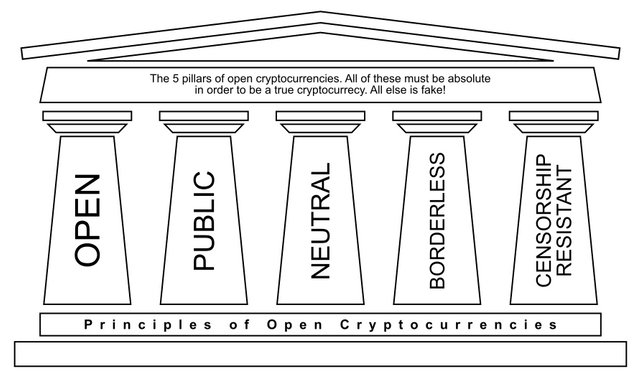
Before we get started.
Yesterday I talked about the Silicon Valley Bank collapse and how they had too many "bonds" and "other safe investments". Turns out what they actually had were mortgage-backed securities. This is why everyone got so triggered and called it a repeat of 2008. Rest assured that these mortgage-backed-securities are nothing like the overleveraged ones that caused the 2008 financial crisis.
When set up correctly this kind of investment is usually quite safe... of course they still went bankrupt... didn't they? Still, the contagion everyone is talking about isn't going to come from SVB and we should be more worried about other systemic risks to the economy like the FED continuing to raise rates and newbie bankers having no idea how to hedge against the war on inflation.
https://www.tiktok.com/@hankgreen1/video/7209421596124007686?lang=en
Hank Green is a pretty smart guy.
Even though he's an insufferable optimist and perhaps even a bit gullible it's still good to have him around to balance out all the crazy that I spit.

222,430 Hive Confirmed (including delegations).
Oh hello phat stack of Hive.
That's right! I've done it! I've acquired more Hive than I ever had before by 12k. My last all time Hive was 210k on January 6, 2021 during the double airdrop for SPK and Ragnarok. Hive was trading at $1.40 at that time and my account was worth $300k. Ah! The good ol days amirite? Wen moon?
I do have a bit of a tendency to rage-buy Hive and power it all up when it crashes like this. Perhaps it's a coping mechanism! Whatever the reason, I do not care. More Hive for me.

Powered up 25k for good measure.
I did the maths and it will only take 2 weeks to unlock 26k Hive if I need to make it liquid again. Should be fine considering I'm not looking to sell anywhere near this price point. Still targeting 80 cents which is what I've been valuing this community's token at since 2017.
Onto the real post:


That is so Meta
If you haven't heard the news Mark Zuckerberg must think that NOSTR is a really good idea because he's trying to beat them to the punch. Good luck with that, Marky. Somehow I doubt your product can compete with a million zealous blind-faith maximalists.
Meta is building a decentralized, text-based social network
Sure you are, bud.
Sure you are.
The word Decentralization has become a fad.
Especially within the corporate world, this word is losing all meaning, along with other words like "expert" and "quality" and "innovation" and "disruption". These words mean nothing when the entity uttering them is trying to sell an agenda. And my friends: there are a great many agendas out there all vying for attention within the attention economy.
News that Meta has been exploring a text-based network was first reported Thursday by MoneyControl. The app is codenamed P92 and will allow users to log in through their existing Instagram credentials, the outlet reported.
Login with Instagram... sounds super decentralized I tell ya.
Details about the project are scant. The product is still in its earliest stages, sources said, and there is no time frame for it being released. But legal and regulatory teams have already started to investigate potential privacy concerns around the app so they can be addressed before launch, we’re told.
"Privacy concerns"
As in someone being able to boot up a node and track every IP and associated email. Good luck solving that without public/private key encryption. And also how can there be legal/regulatory concerns if the protocol is decentralized? Seriously though. These corporations are constantly telling on themselves. A regulatory concern means they can shut it down if there's a problem. If they can shut it down it's not decentralized. Dirp.
The most remarkable aspect of the project is that Meta plans for the network to be decentralized. While the company would not elaborate beyond its statement, in a decentralized network individual users are typically able to set up their own, independent servers and set server-specific rules for how content is moderated.
Ya don't say?
So what even is "decentralized" within this context?

What is really going on here?
The answer is pretty simple. Centralized tech companies can see the writing on the wall. They want to wet their beak on this action, and they are willing to lie and bend the rules to do it. They want to capitalize on the 'fad' that is 'decentralization'.
What's happening here is a sneaky manipulation and the employment of several logical fallacies. I tried to remember the word that refers to a one-way implication, but all I could come up with was "correlation does not equal causation". Close enough I suppose. The converse logic is not necessarily true.

Big tech loves to employ logical fallacy to their own benefit.
This is their brand.
This is how they make money.
Manipulating data.
If it is raining, the ground must be wet.
Big Tech will spin this to the ground is wet so it must be raining.
Figuratively all they did was turn on a hose and make the ground wet.
But they've still got most of the world convinced that it must be raining.
After all... the ground is wet!
How could it not be raining!?!
Now apply this logic to "decentralized"
- Well it's open-source, so it must be decentralized!
- Well it's public, so it must be decentralized!
- Well it's permissionless, so it must be decentralized!
- Well it's borderless, so it must be decentralized!

Decentralized protocols have these attributes, but you can't just make something with these attributes and assume it is decentralized. Linux is open source, and everyone uses Linux to run their server nodes because it is incredibly stable. Does that make the servers decentralized? Hardly.
What we are seeing here is the juxtaposition between "open source" and "decentralized". Decades of failed open-source scaling models are being thrown out the window because a few cryptocurrencies are having success with their incentive models.
Incentives
A protocol can not scale without incentives. Meta's 'decentralized' platform will not be decentralized because there's no way they are going to launch a token to incentivize providing infrastructure to the ecosystem. It's the same problem that NOSTR and all the other 'decentralized' text storage platforms have. There's no actual reason to host this software out of pocket.
Intrinsically this means that all scaling will have to be done with WEB2 tactics (or even worse WEB1 paid subs). That means data collection and the exact invasions of privacy they are already preemptively claiming won't exist. They are lairs. It's quite obvious.
Building a decentralized network could also give Meta the opportunity for its new app to interoperate with other social products — a previously unheard-of gesture from a company known for building some of the most lucrative walled gardens in the industry’s history.
Truly... it will be interesting to see what Meta is actually trying to accomplish here.
It's true that they've created the ultimate "walled garden" but it's also true that they've created tons of open-source tech. Actually I wrote a post about this a while back called... Mark Zuckerberg is a Better Open Source Developer than 99% in Crypto (a triggering headline to be sure). Facebook created the React protocol and RocksDB... both of which are used by Hive developers quite heavily. Go figure.
So it is not absurd to think that whatever Meta is building right now might actually have a ton of value even though it won't be decentralized. It will definitely be open source and anyone will be able to use it. Within that context this is potentially an exciting development.
Why does Meta need a decentralized protocol?
Short answer: they don't.
The entire point of decentralization is to take power away from those who have it and wield it with corruption. All Meta has to do is stop being a corrupt company and this will fix their problem instantly. Centralization is better than decentralization in every way if the centralized agent is trustworthy. The only reason Meta has to build this thing is to capitalize on the decentralization fad while people still have no idea what the word even means.
There is no magic decentralized solution that allows Meta to suddenly accomplish new things that they couldn't do before. The entire history of open-source development confirms this a thousand times over. Not once has any big company created a decentralized protocol that helped them achieve a previously unattainable goal, and it would be foolish to assume that somehow Meta will break through and be the first company to accomplish such a feat. I'll believe it when I see it. Until then, crickets.
Conclusion
All decentralized protocols are open-source, but not all open-source protocols are decentralized. Decentralization is an artform that Big Tech is never going to understand because their relevance depends on them not understanding it. The foundation of this artform is rooted in proper economic incentives. It is all but guaranteed that this protocol will have no such incentives (just like NOSTR). It will be fun to see just how badly this Meta protocol fails, and who knows, they may even build something useful for actual decentralized protocols to use. One can hope.
Posted Using LeoFinance Beta



